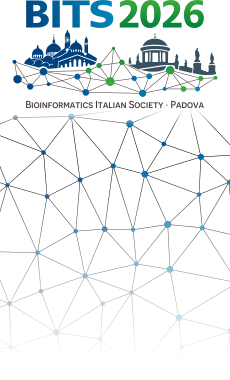Department of Bioinformatics - BiGCaT, NUTRIM / Maastricht University, the Netherlands: vacancy for a postdoc.
This position will remain open until we find a suitable candidate.
Postdoc Bioinformatics
Integration of different types of biological information in genomics analysis: from pathway back to sequence
Description:
Biological effects are generally the result from interactions between a magnitude of related gene products and metabolites. Studying these cellular components on a high-throughput scale is a main focus of current research in genomics. As such, analysis on the level of biological pathways is very important for the understanding of the outcome of these studies. Recently, our department has introduced Wikipathways, in collaboration with the University of California, San Francisco. This community based pathway platform supports development and curation of pathways (www.wikipathways.org) and has already been used by international domain experts to contribute content.
Directly connected to this effort, our department has developed a novel pathway analysis tool, PathVisio (www.pathvisio.org). PathVisio is a Java-based, open-source tool.
The focus of the postdoc position is on the integration of various types of available biological information by making use of network analysis. A commonly used tool for visualizing, modeling and analyzing molecular and genetic interaction networks is the free software package Cytoscape. Cytoscape is very flexible and allows users to extend its functionality by creating or downloading additional software models called "plugins". The networks can be analyzed by identifying putative functional and structural modules. A connection between Wikipathways and Cytoscape is already realized, enabling the exchange of information.
First, all the interactions between gene products and metabolites present in Wikipathways and information available in genomics repositories should be integrated. By integrating these information repositories a complete overview of interactions can be generated. Adding more data does not automatically lead to a better understanding of the mechanism, it can also make the interpration more complex. Therefore, it is necessary to select the most important information. This filtering can be done in several ways.
Second, additional information on more recently discovered gene and protein regulation mechanisms should be added to the pathways in WikiPathways. Regulation of gene expression and proteins occurs at several levels by for example transcription factors and microRNAs. Various databases describe target sites for these gene regulators. By coupling the information on target sites to the genes present in the pathways, regulation can be incorporated, taking the visualization and analysis of pathways to the next level.
Third, a single nucleotide polymorphism (SNP), which is a variation of a single nucleotide in a DNA sequence on population level, can be related to a certain disease state or susceptibility to pathogens. Genes within the pathways should be linked to important SNPs. This will enable the analysis of SNP arrays and in the near future sequencing studies.
The postdoc will collaborate with excellent researchers in nutrigenomics and nutrigenetics to use the data integration approaches developed in real life studies and will visit some of the research groups involved. Bioinformatics is evolving rapidly. One should keep up with novel techniques and methods. This makes Bioinformatics a challenging research field with new and exciting opportunities.
Requirements
The candidate should have a PhD in Bioinformatics, Medical Biology, or related field. He or she has a strong affinity with data integration, network and pathway analysis. An interest in online cooperation in open source development is required. He or she should feel the new developments in genomics and systems biology as a challenge. In addition, excellent communication skills, both oral and written and a good knowledge of English are necessary.
Salary
The position is a full-time (1.0 fte), temporary position for a period of 4 years. Salary will be according to standard levels for postdocs and depending on experience.
The terms of employment of Maastricht University are set out in the Collective Labour Agreement of Dutch Universities (CAO). Furthermore, local UM provisions also apply. For more information look at the website http://www.maastrichtuniversity.nl/ , go to "Prospective employees" and than "UM as an employer". Here you will find the terms of employment.
Requesting information
For more information concerning the two positions please contact:
Dr. CTA Evelo (head of the department of Bioinformatics),
telephone: +31-43-3881999 (secretary) or +31-43-3881231 (direct),
email: jos.bien@bigcat.unimaas.nl.
Please mention as subject the specific position.
Location
Department of Bioinformatics, NUTRIM/Maastricht University
Universiteitssingel 50, 6229 ER Maastricht
The Netherlands
Maastricht University
Maastricht University is renowned for its unique, innovative, problem-based learning system, which is characterized by a small-scale and student-oriented approach. Research at UM is characterized by a multidisciplinary and thematic approach, and is concentrated in research institutes and schools. Maastricht University has around 14,000 students and 3,500 employees. Reflecting the university's strong international profile, a fair amount of both students and staff are from abroad. The university hosts 6 faculties: Faculty of Health, Medicine and Life Sciences, Faculty of Law, School of Business and Economics, Faculty of Humanities and Sciences, Faculty of Arts and Social Sciences, Faculty of Psychology and Neuroscience. See for additional information www.maastrichtuniversity.nl.
Department of Bioinformatics - BiGCaT, NUTRIM
NUTRIM School for Nutrition, Toxicology and Metabolism is part of the Faculty of Health, Medicine and LifeSciences of the Maastricht University. NUTRIM initiates and catalyzes translational research into nutritional health benefits and risks focusing on metabolic and chronic inflammatory diseases. There are 15 departments incorporated within NUTRIM, amongst them the bioinformatics department (BiGCaT). The total number of staff (scientific and support staff) participating within NUTRIM is approx. 245 including some 120 PhD students. Within the bioinformatics department de main focus is to help understand the meaning of "omics" data, to integrate the knowledge needed to do that, to develop novel analysis methods and to apply all of that in ongoing biomedical research.
See for additional information www.bigcat.unimaas.nl.
Application Procedure
Letters of application should be accompanied by a Curriculum Vitae.
The applications can be sent by mail to:
Dr. CTA Evelo,
Department of Bioinformatics,
Maastricht University,
PO Box 616 (Box 19),
6200 MD Maastricht,
the Netherlands




